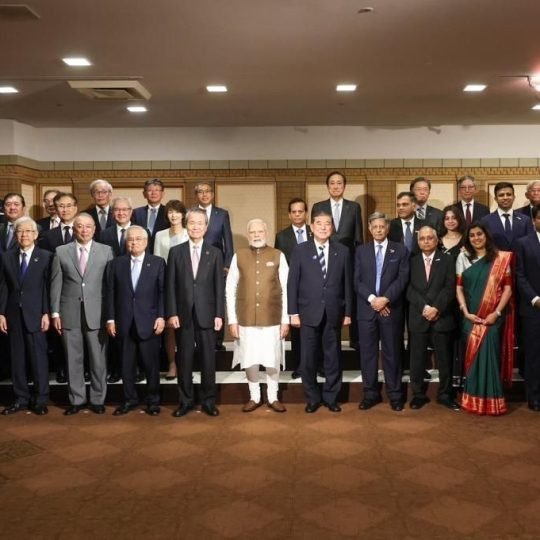The Forum, meeting after a gap of seven years, underlined key areas for enhanced bilateral cooperation including green energy, electric mobility, space technology, artificial intelligence, semiconductors, digital technology, data centres, healthcare, and electronics.
In his address, Baba Kalyani emphasised the strategic importance of the India-Japan partnership, describing it as a resilient and vital force for global economic security and sustainable growth, particularly against the backdrop of ongoing trade uncertainties. Kalyani highlighted several medium-term focus areas to further strengthen the partnership.
He stressed the need to build greater resilience in global value chains by leveraging India and Japan’s complementary strengths, while also welcoming increased Japanese investments in India across banking, financial services, and the establishment of global capability centres. He underlined the importance of co-creating and co-developing solutions for Society 5.0, the vision of a technology-driven, human-centered society.
Baba Kalyani also called for the creation of joint standard-setting bodies to drive mutual recognition agreements across sectors, and emphasised the significance of skill mobility and human exchange, noting India’s demographic advantage in providing a young and skilled workforce to support Japan’s evolving needs.
Baba Kalyani and Tsutsui-san, Chairman of Keidanren, collectively submitted the Joint Forum Report to the Prime Ministers. The report outlines recommendations and opportunities to take the India-Japan partnership to the next level.
The Joint Statement outlined a series of forward-looking initiatives designed to enhance strategic autonomy, strengthen cooperation, and diversify bilateral economic ties for sustainable growth. These include:
Revising the Comprehensive Economic Partnership Agreement (CEPA)
Amending the tax treaty, and supporting India’s potential accession to the CPTPP
Launching an India-Japan Private-Sector Dialogue on Economic Security
Advancing decarbonisation through clean energy technologies and the Joint Crediting Mechanism
Strengthen cooperation across semiconductors, smart manufacturing, and AI
Promoting SME and start-up collaborations
Expanding partnerships in third-country markets like Africa, and promote greater talent and cultural exchange
Both sides also discussed bilateral cooperation in the space sector as well as potential for collaboration in film, animation, gaming, and extended reality (XR).
The occasion reaffirmed that the India-Japan economic partnership is entering a new era of innovation and shared prosperity, creating a win-win model for both nations and the global economy.






